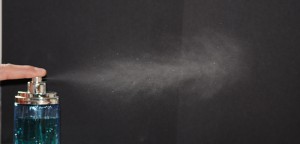 Did you know that many personal use product such as cosmetics, shampoos, and body washes contain chemical fragrances that could be harmful to you and your family's health?
Did you know that many personal use product such as cosmetics, shampoos, and body washes contain chemical fragrances that could be harmful to you and your family's health?
Not many people do. It's also a secret that companies do not have to disclose which chemicals they are using as fragrance. They simply list fragrance-- which can mean any chemical is added to a product, even ones that have been linked to numerous health problems. Sometimes, fragrance is even added and not listed. And synthetic fragrance use in the marketplace has doubled since 1990.
Here are some reasons why this is a public health problem:
1. Many fragrances contain phthalates. These hard to spell chemicals are linked to reproductive and developmental harm, including lower sperm counts and gential birth defects. Manufacturers do not have to currently label use of phthalates (another reason we NEED toxics reform!), they list the word fragrance instead. And according to our friends at Safer Chemicals, Healthy families, "Phthalates also have been associated with obesity, reduced female fertility, preterm birth and low birthweight, a worsening of allergy and asthma symptoms, and behavior changes."
2. Synthetic fragrances trigger allergies. Rates of allergy from synthetic fragrances are on the rise, especially in children. Twenty percent of the population suffers from allergies, and between two and eleven percent of those are fragrance allergies. Women suffer more from these allergies because of their jobs in caregiver fields where products with synthetic fragrances are used.
3. Fragrances may contain neurotoxins. You would think is is impossible, but according to our friends at the Campaign for Safe Cosmetics, in 1986, the U.S. National Academy of Sciences identified fragrance ingredients as one of six categories of neurotoxins (chemicals that are toxic to the brain) that should be thoroughly investigated for impacts on human health. Trouble is, they haven't been investigated. Do we really want to take this gamble?
4. Synthetic musks may be toxic to wildlife. These chemicals accumulate in aquatic species and were found in many fish and mussels in the Great Lakes region. Two musk chemicals, Galaxolide and Tonalide kill freshwater mussel larvae and cause juveniles to develop more slowly. There is much more research needed to fully understand the impact of synthetic fragrances on ecosystems. To protect these ecosystems and our own drinking water, doesn't it make sense to lessen the use of these persistant and accumulative chemicals?
5. Musks may cause cancer. Exposure to musk chemicals can disrupt hormones, just like BPA and other industrial chemicals. According to our friends at Safe Cosmetics, one musck chemical, Tonalide, has also been reported to increase estrogen-responsive human breast cancer cells. There is much more to learn about the connections between fragrance chemicals and cancer. But why not act in the interest of public health, and disclose (and limit) this chemical use?
6. Babies are born with synthetic musks and fragrances in their umbilical cord blood. In laboratory tests by the Environmental Working Group and Rachel's Network, 7 out of 10 babies were born with fragrance chemicals Galaxolide and/or Tonalide, musks in personal care products and cosmetics. Early research links these chemicals to hormone disruption. These types of chemicals also tend to accumulate in the body, potentially causing harm for long periods of time. This evidence shows the connection between what a mom uses during pregnancy that could be harmful to the fetus and infant.
7. Musks are found in breastmilk. We know breastfeeding is healthiest for babies and mothers: it offers many health benefits including protection from sudden infant death syndrome, stronger immune systems, lower risks of breast, uterine, and ovarian cancer, and many, many other lifetime health benefits. But industrial chemicals are showing up in breastmilk, and this sacred, vital way of feeding our babies in impacted. Our babies have a right to pollutant free breast milk. Musks are one of many chemicals in breastmilk. While this news shouldn't cause women to stop breastfeeding, hopefully it will mobilize us to take action to limit the use of toxic fragrance chemicals.
It's time we take this issue seriously, as a threat to public health. Companies in the very least need to disclose the use of synthetic fragrances in their products, and develop a plan to limit their use.
Are you sensitive to synthetic fragrances? What do you think should be done? Please share in the comments.
image by Lauren Tucker Photography on Flickr under CC


The views and opinions expressed in this post are those of the author(s) and do not necessarily reflect those of MomsRising.org.
MomsRising.org strongly encourages our readers to post comments in response to blog posts. We value diversity of opinions and perspectives. Our goals for this space are to be educational, thought-provoking, and respectful. So we actively moderate comments and we reserve the right to edit or remove comments that undermine these goals. Thanks!